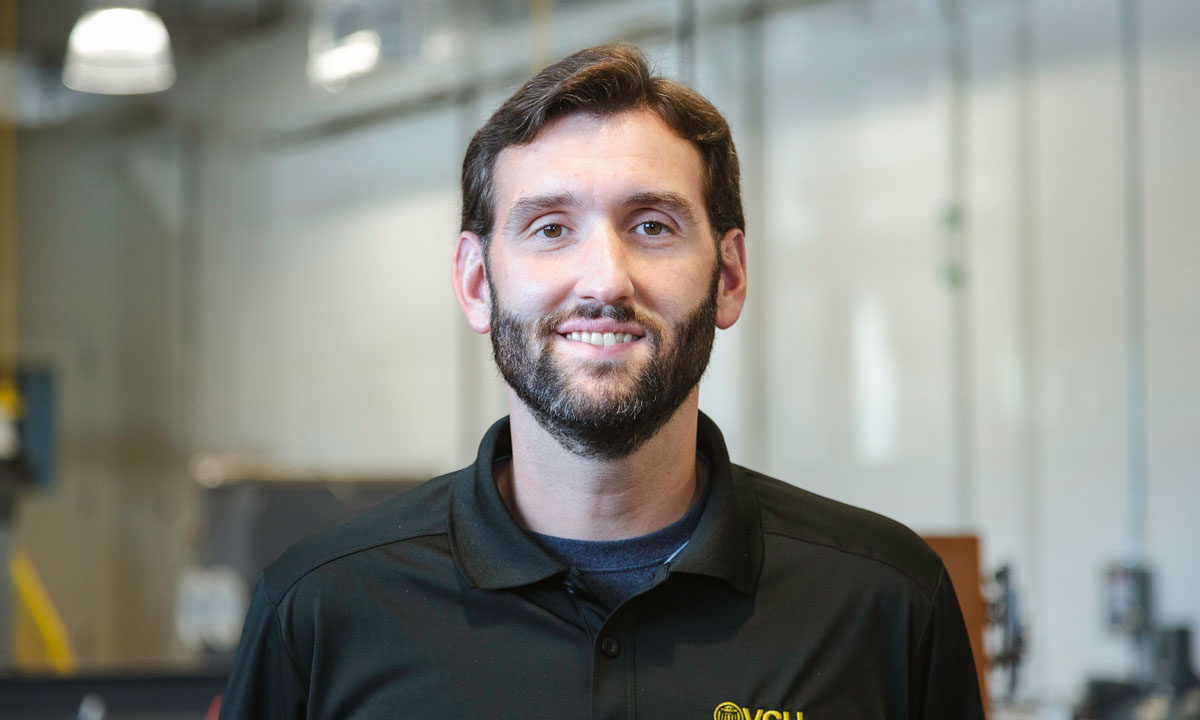Hands-on learning is central to VCU College of Engineering’s philosophy. As the college dedicates more square footage to active, collaborative design and fabrication, it has named Charles Cartin, Ph.D., as its inaugural director of makerspaces. Cartin is an associate professor in the Department of Mechanical and Nuclear Engineering.
“Makerspaces are places where students from all walks of life can come together to innovate, ideate, create and build something together from start to finish,” Cartin said. “Allowing engineers, art majors and students from other fields to unite on multiple projects is a way of opening the door for extended collaborations across all departments.”
He will continue to lead the MNE Innovation Lab. Established in 2016, this advanced additive manufacturing hub offers an array of 3D printers for large and small production. To date, it has supported the work of faculty and students from disciplines including dentistry, medicine, the arts, as well as engineering.
In his new role, Cartin will also oversee the operations of VCU’s Maker Garage, slated to open in September. This newly renovated, 4,000-square-foot facility at 12 W. Cary Street, formerly the site of Grubbs’ Auto Service, has traditional and advanced manufacturing capabilities, including resources for large-scale projects such as Hyperloop and Formula SAE at VCU.
The Maker Garage has spaces for metalworking, assembly and finishing, plus a computing and conference area so teams can modify their plans collaboratively. Like all of the college’s makerspaces, it supports interdisciplinary thinking, so it will be used — and staffed by — students from multiple academic fields. Boris Solomonov, the college’s machine shop manager, will assist with student projects, training and workflow.
When VCU’s new Engineering Research Building opens in 2020, Cartin will also direct the 9,000-square-foot Maker Studio that will occupy much of the building’s ground floor. Plans for this expansive facility are underway and will include spaces for large and small group collaboration, storage for long-term projects and a variety of old-school and next-generation manufacturing tools.
These facilities’ equipment — which includes laser cutters, computer numerical control machines and the Maker Garage’s new waterjet cutter capable of safely cutting almost any material — is dazzling, but Cartin thinks active problem solving will be the most enduring benefit.
“Giving students a hands-on approach to the process allows them to actually realize their design work well before they finalize the overall product,” he said. “This makes designs and the designers better.”
